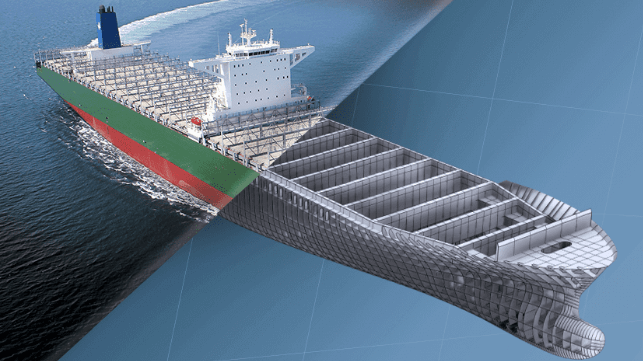GAO: U.S. Navy Could Learn From Commercial Shipbuilders' Standards

The U.S. Navy is struggling to get its next generation of surface combatants and submarines built on time and on budget, and several major programs are years behind. Delays and changes in ship design are part of the problem, the Navy acknowledges, and the service is taking steps to speed up engineering work, like co-locating contractors and Navy ship designers in one place to collaborate. The Government Accountability Office (GAO) has a lot of additional recommendations, based on the current standard for commercial shipbuilders.
Even the most complex and expensive commercial vessels - cruise ships, which are often built by European defense shipbuilders - go from detail design to first-in-class delivery on a timeline up to four times faster than U.S. Navy surface combatants. The difference comes down to a few factors. First, the Navy has a long requirements process, which drags out the timeline before the start of detail design. Cost and schedule estimates are prepared before the design is stable, leading to changes and budget uncertainty down the road. Vendor selection for ships' systems is also slow, which further delays the completion of detail design.
GAO also found that the Navy does not have the structured design timelines and milestones for design maturity that commercial owners use to make shipbuilding choices. The service does not have a defined, time-limited process for reaching decisions, and lots of stakeholders have overlapping authority. This slows down the process of getting to a decision on detail design elements.
While the Navy has multiple departments with decisionmaking authority, it recognizes that it has less strong in-house design capabilities, and it is working on ways to become a more technically proficient shipbuilding customer. Adopting modern computer aided design tools would help with this process, according to GAO.
The GAO is recommending that Congress require that all essential design work be completed with 3D modeling before any work begins on construction, and that every block should have a complete detail design before it is built (as opposed to the government shipbuilding practice of "concurrent design and construction.") This requirement would include finishing the design of all major distributive systems before laying the keel.
It has also advised the Secretary of the Navy to make basic internal changes, like requiring that the functional design process be done before awarding a detail design contract, and setting up efficient timetables and standards for design review. It also suggests that the people who will use the ships - current or recent surface warfare officers - be embedded in the design review teams to provide user feedback on practicality.
No comments:
Post a Comment